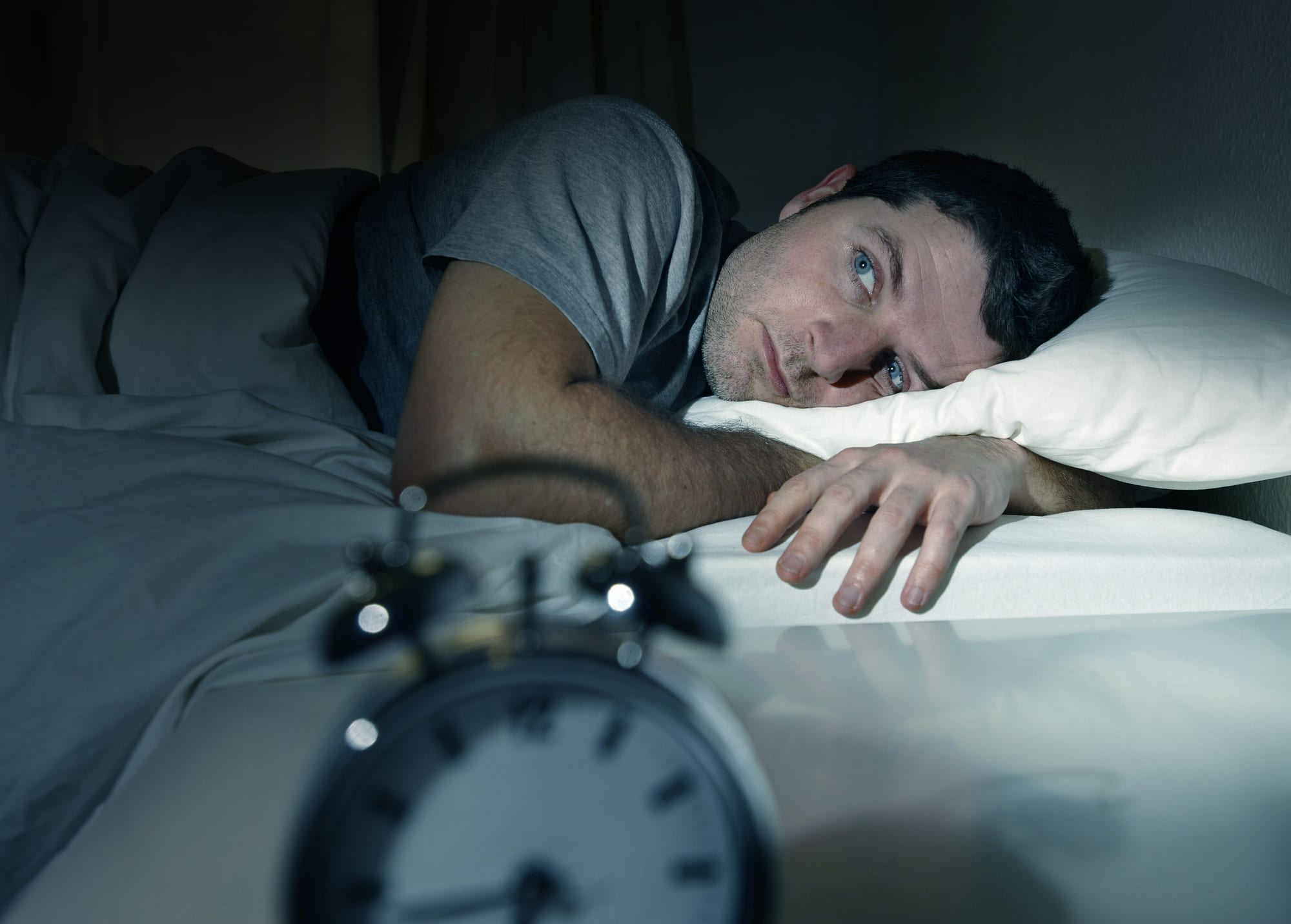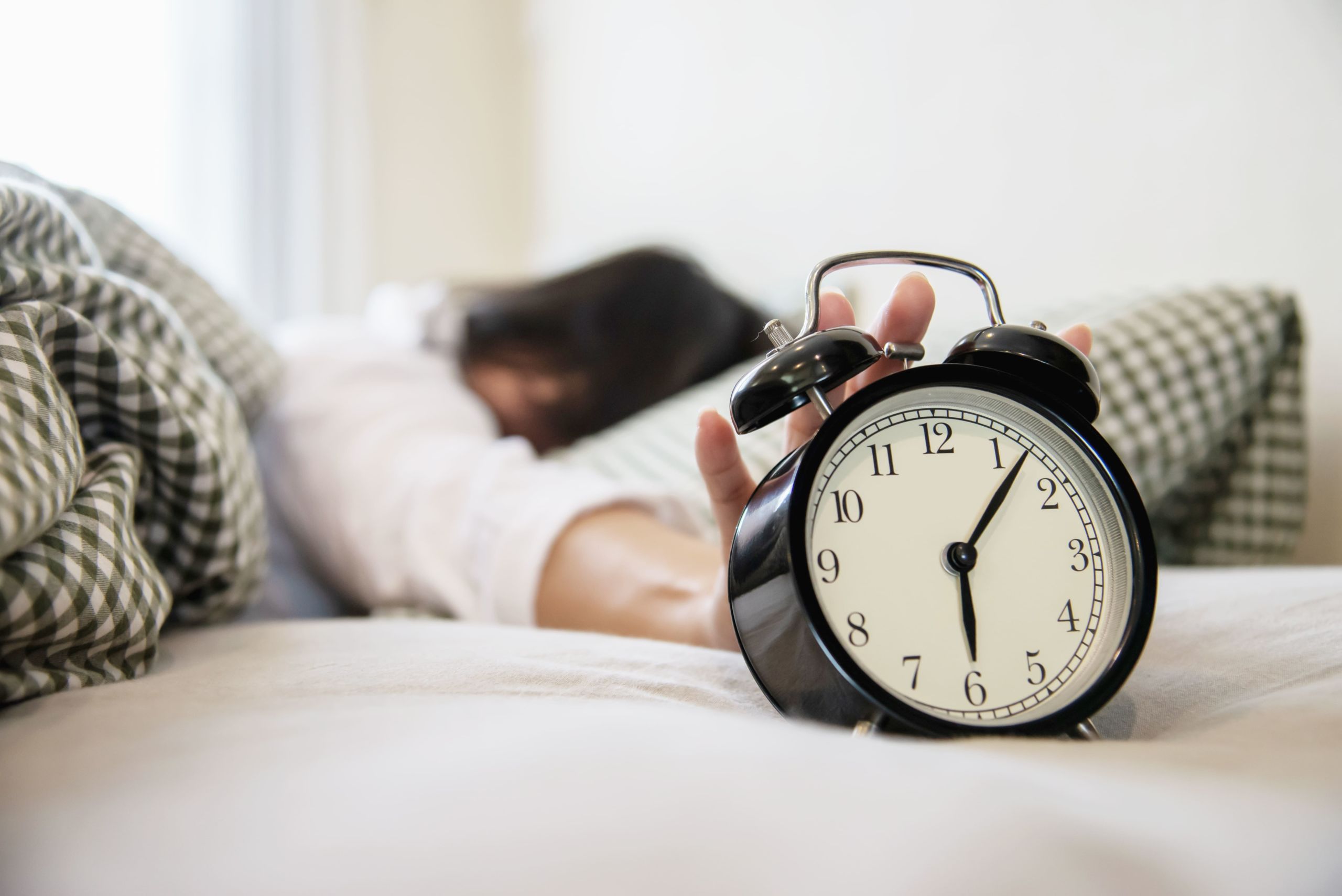Insomnia and sleep disorders can be extremely frustrating and physically taxing conditions, leaving those who suffer from them exhausted, unfocused, and irritable. Insomnia symptoms usually appear during a stressful period, but they can persist even after the stressor has passed.

Insomnia symptoms include difficulty falling asleep, waking up during the night, waking up too early, not feeling well-rested after a night’s sleep, daytime fatigue, irritability, difficulty concentrating, and difficulty staying awake during the day.
Insomnia can contribute to distress, increased rates of accidents or errors, and ongoing mood symptoms.
Insomnia Types:
Insomnia is classified into three types by the American Academy of Sleep Medicine: chronic insomnia Syndrome, short-term insomnia disorder, and other insomnia disorders.
Chronic Insomnia Syndrome:
Chronic insomnia occurs when a person has sleeping difficulties and related daytime symptoms, such as fatigue and attention problems, at least three days per week for more than three months or on multiple occasions over years. It is estimated that 10% of the population suffers from chronic insomnia disorder.
People who suffer from chronic insomnia are frequently distressed by their inability to sleep and the daytime symptoms that result from their sleep problems. In most cases, the symptoms are severe enough to interfere with a person’s work or school performance, as well as their social or family life.
Short-Term Insomnia Syndrome:
Short-term insomnia disorder is characterized by the same sleep difficulties and symptoms as chronic insomnia disorder, but the problems last less than three months and may not occur three times per week. In any given year, it is estimated that between 15% and 20% of adults suffer from short-term insomnia.
Short-term insomnia is frequently caused by an external cause, such as a life stressor such as divorce, the death of a loved one, or a major illness. People who sleep lightly are more likely to suffer from short-term insomnia than others.
If short-term insomnia disorder lasts for more than six months, it may be reclassified as chronic insomnia disorder.
Insomnia causes:
Insomnia can be caused by a variety of physical and psychological factors. Often, the cause is a transient issue, such as short-term stress. In some cases, insomnia is caused by an underlying medical condition.
Typical causes include:





Insomnia Treatment Program Houston, TX
Multiple treatments for insomnia disorders are available:

In traditional Chinese medicine, acupuncture is frequently used to treat insomnia. This procedure involves inserting very fine needles into the skin at specific acupuncture points to influence the body’s functioning (sometimes in conjunction with electrical stimulation or heat produced by burning specific herbs).
Acupuncture has been shown in recent studies to improve sleep quality in people who suffer from insomnia.

Sleep can be disrupted by increased muscle tension and intrusive thoughts. Insomnia can be effectively treated with techniques aimed at relaxing muscles (progressive muscle relaxation and biofeedback) and quieting the mind (meditation). Most people can learn these techniques, but it usually takes several weeks for them to master them sufficiently to help with insomnia.
A growing body of evidence supports the effectiveness of meditation in treating insomnia. Several studies have found that regular meditation practice, whether alone or as part of yoga practice, results in higher melatonin levels in the blood.
We can help you overcome your insomnia by combining our comprehensive diagnostic tests with your personal wellness and treatment plan.
We will correct the fluctuations in your hormone and energy levels and return them to your natural cycles using the appropriate hormone tests, meditation, other stress-reduction strategies, and a customized recipe of soothing herbs.
Acupuncture will require the nervous system, to realign your energy at the right place at the right time, alleviating associated symptoms such as aches and pains, and promoting relaxation. You might even want to take a nap!

